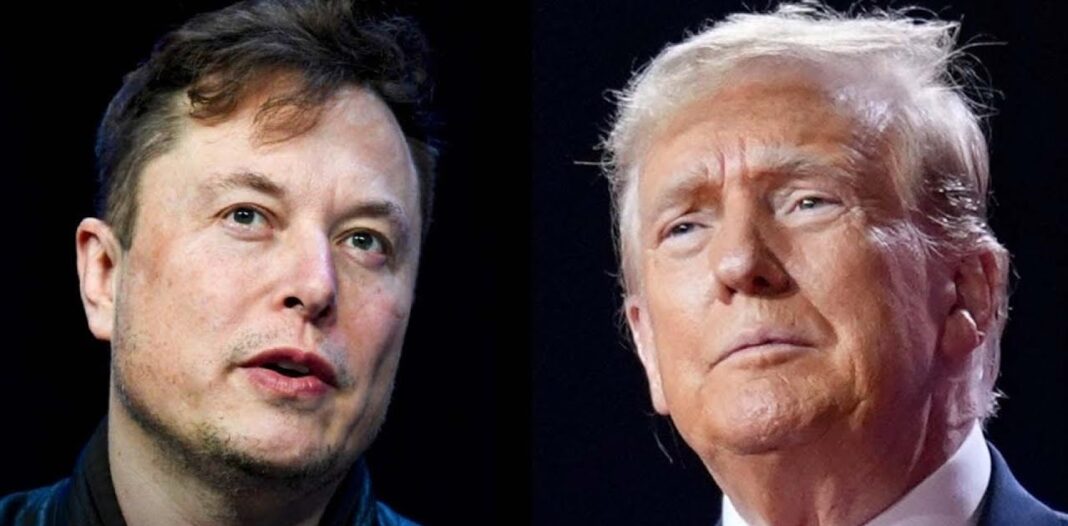The Federal Overhaul Under Elon Musk’s Leadership
Elon Musk, a visionary entrepreneur known for his disruptive impact on industries like automotive, space exploration, and social media, has now taken on what may be his most ambitious challenge yet—the restructuring of the U.S. federal government. With the backing of President Trump in his second term, Musk has been handed unprecedented power to reduce bureaucracy, optimize government efficiency, and introduce a Silicon Valley-style approach to federal operations. However, this bold move has raised serious concerns among policymakers, civil servants, and political analysts regarding the future of governance in the United States.
Elon Musk’s Entry into Government: A Hostile Takeover?
The first sign of Musk’s aggressive approach became evident immediately after Trump’s inauguration, when his team moved into key government agencies, notably the Treasury Department and the U.S. Agency for International Development (USAID). Reports from various federal employees suggest an intimidating environment, with Musk’s recruits interrogating long-time civil servants, questioning their roles, and even encouraging voluntary resignations.
One of the most shocking moves was an email sent to approximately two million federal workers, offering them the choice to resign with a severance package extending through September. This strategy mirrored Musk’s approach at Twitter when he drastically reduced the workforce to improve efficiency. The message was clear: either align with the new vision or step aside.
Targeting the Financial Backbone of Government
Musk’s first major reform effort focused on the Treasury Department, particularly the federal payment system responsible for distributing over $5 trillion annually. His team’s demand for access to this critical system faced resistance from career officials, with one senior treasury member outright refusing to grant entry. That individual was soon placed on administrative leave, and within days, Musk’s team had secured “read-only” access to monitor transactions. Musk’s stated goal is to eliminate fraudulent government payments, but the implications of this level of oversight remain a concern for many.
Dismantling USAID: A Strategic or Ideological Move?
The USAID, an agency responsible for international humanitarian aid, was another prime target. Musk’s team entered its headquarters, suspended 60 senior officials, and terminated contracts for hundreds of employees. Within a week, the agency’s website went offline, its operations paralyzed. While Musk’s allies framed this as an effort to cut wasteful foreign spending, critics argue that the move aligns more with ideological motivations than economic necessity.
Government Under Musk: A Paradigm Shift or Recipe for Chaos?
Musk’s approach to government reform is undeniably radical. Unlike traditional government restructuring efforts, which are typically slow-moving and heavily debated in Congress, this overhaul is being executed with Silicon Valley’s rapid iteration mindset. However, such an approach raises crucial questions about governance stability:
- Are these reforms efficient or reckless? While Musk has a track record of reviving companies like Tesla and SpaceX, governing a nation involves complexities that extend far beyond profit margins.
- Who is accountable? Musk operates largely outside of traditional government structures, raising concerns about oversight and decision-making transparency.
- Are democratic principles at risk? The sweeping nature of these changes, conducted with minimal congressional intervention, suggests a shift away from bureaucratic governance toward a more centralized and privately influenced model.
Future Implications and What Comes Next?
Musk’s influence over government operations is likely to expand further. His team is already scrutinizing the Department of Education, and if the pattern holds, more agencies could face similar overhauls.
From an economic perspective, the strategy of slashing federal jobs and funding could lead to a short-term budget surplus, but at the potential cost of disrupting critical public services. The reduction of government spending could also have cascading effects on local economies, particularly in regions heavily reliant on federal employment.
For businesses, Musk’s push toward privatization could present opportunities, particularly for companies specializing in digital infrastructure, cybersecurity, and AI-driven automation. However, regulatory uncertainties could pose risks for industries dependent on stable government contracts.
From a geopolitical standpoint, the dismantling of international aid programs could shift U.S. foreign relations, potentially weakening diplomatic ties and influence in global humanitarian efforts.
The Next Big Question: As Musk’s influence deepens, policymakers and citizens alike must consider—should the federal government operate with the agility of a tech company, or does governance require the checks, balances, and stability that bureaucracy, for all its flaws, provides?
Disclaimer:
This article presents an analysis based on reported events and does not endorse any political stance. The views reflected here are interpretations of available information and should not be considered as direct quotations from any individuals involved in the discussed matters.
Alex Murphy is an investigative journalist who specializes in uncovering emerging business trends and technologies shaping the future.




